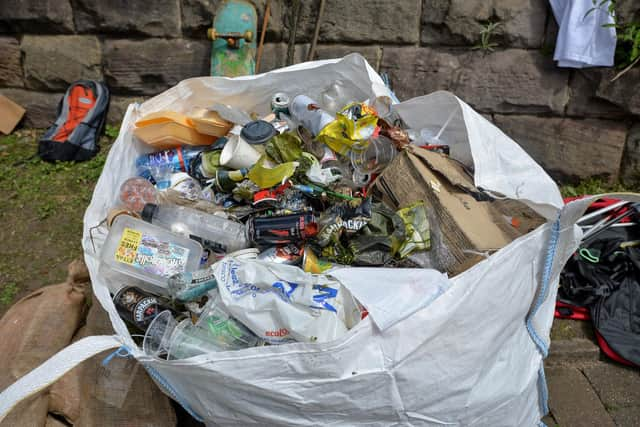Experts at the University of Portsmouth have called on the UN to have zero plastic by 2040
and live on Freeview channel 276
In an article, which has been released today by Professor Steve Fletcher, director of the global plastics policy centre at the University of Portsmouth, in Nature Reviews Earth and Environment, which outlines the reasoning behind the ambitious target.
Advertisement
Hide AdAdvertisement
Hide AdThe team at the University of Portsmouth have advised the United Nations Environment Programme, G20, and World Bank on plastic policy and how to tackle plastic pollution.


Professor Steve Fletcher said: ‘The treaty’s target must be ambitious and meaningful, we are calling for the UN to aim for a minimum goal of 0 per cent new plastic pollution by 2040. To achieve this, policymakers, businesses, researchers and wider society must go beyond the existing best available technology and practice and be radical in their thinking to develop a coordinated global strategy to tackle plastic pollution.
‘The Global Plastic Treaty needs a target that is clearly defined. At present, there is ambiguity about what ‘ending plastic pollution’ actually means. For the treaty to work it’s vital for there to be a single target and an agreed strategy.’
Advertisement
Hide AdAdvertisement
Hide AdLead author, Antaya March, from the Global Plastics Policy Centre, University of Portsmouth,said: ‘Plastic is extremely useful, but mismanagement has led to a global pollution crisis that is exacerbating climate change. A complete transformation to a circular plastics economy is needed to radically reduce or eliminate plastic pollution while supporting necessary use.’
Professor Fletcher added: ‘It is a huge achievement that the development of a global legally binding treaty by the UN to end plastic pollution is underway. But to be effective, the global treaty requires new levels of transparency, disclosure and cooperation to support evidence-based policy-making that avoids the fragmented and reactionary policies of the past. A system change needs to arise that fundamentally alters the way we behave and interact with plastic.’